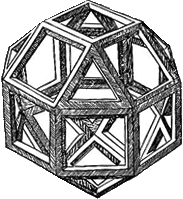What could thousands of polymaths do?
What happens to students after they graduate?
All of them have at least partially completed projects which could change the world - it's a graduation requirement. We're planning for a graduating class of approximately 7500 (which will expand on other campuses as we grow). Here's one rather conservative scenario:
- Assume 30% of students (2250) continue working on their projects after graduation.
- Assume 1% of those students (22) eventually succeed in developing their projects to full scope. This is a highly conservative estimate, given that over 10% of average startups succeed.
- Assume that roughly half of these (11) involved commercial endeavors and the other half (11) involved deep research or philanthropic endeavors (of course, these can overlap).
- Assume the companies hit a value of $500 million each (if you're selling cars that run on water or large-scale quantum computers - the sorts of projects our students will pursue - this estimate is quite small).
One year's alumni have then added $5.5 billion to the economy and opened up 11 new fields of scholastic inquiry, only counting the small percentage of people who completely succeeded at their projects. A much greater proportion of students will have attained partial success sufficient to make significant but less dramatic contributions.
This is remarkably efficient, but there's nothing special going on here. Think about what you're taught in school: have you ever been encouraged to explore a nontrivial idea all your own? Or start a business around it? Pursue it as a 10-year research topic instead of your advisor's work? Most successful people today are forced to work on their own toward their visions, and acquire the necessary skills autodidactically. This yields attrition, and discourages many from taking the necessary risks. We simply help students follow their ambitions and let their imagination become innovation.
As glorious as the individual effects of our plan are, our ultimate goal is to provoke a second Renaissance by raising a new generation of polymaths. The training we will give will vastly reduce the complexity of current interdisciplinary research challenges, accelerating the rate of artistic, scientific, and philosophical progress - of which this is simply a small example. In the past, very few polymaths existed because they were all autodidacts. Imagine what the world will be like when they're systematically trained!






